Search Results
Showing results 881 to 900 of 956
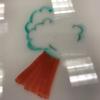
Floating Dry Erase Creations
Source Institutions
In this activity, learners will create a drawing with dry erase markers and watch it come to life. Learners will explore chemistry, art and storytelling through this activity.

Create Gas
Source Institutions
Learners mix vinegar and baking soda together in a bottle to create a chemical reaction. The reaction produces a gas, carbon dioxide, which inflates a balloon attached to the mouth of the bottle.
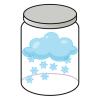
Snowstorm in a Jar
Source Institutions
In this activity, learners will experiment with density and chemical reactions to create a flurry activity.
Mix and Match
Source Institutions
In this optics activity, learners explore color by examining color dots through colored water and the light of a flashlight.

Far-Out Corners
Source Institutions
Are there boxes, is this an illusion, or is this real life Q-bert? Illusions are always fun to build especially when you can build them.
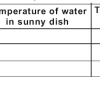
Cool Trees
Source Institutions
This warm weather activity introduces learners to the impact trees have on blocking the sun's heat and reducing temperature on the Earth's surface.

Straw Oboe: Two lips make sound
Source Institutions
Oboes's unique sound originates from the two small reeds a musician blows into. Make your own double reed instrument out of straw!
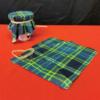
Bubble Cups
Source Institutions
In this activity, learners will construct a device to blow bubbles. By adding corn syrup to the bubble solution, we can increase the surface tension of the bubbles--and their size.

Surface Tension
Source Institutions
In this activity exploring liquid dynamics, learners design and build a clay channel in a tray of water and then see what happens when food coloring and liquid soap are added to the mix.
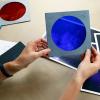
Exploring the Universe: Filtered Light
Source Institutions
"Exploring the Universe: Filtered Light" demonstrates how scientists can use telescopes and other tools to capture and filter different energies of light to study the universe.
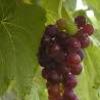
Light Combinations
Source Institutions
In this activity about magnetism (page 17 of the pdf), learners experiment with magnets, exploring the concept of diamagnetic materials by seeing how a grape reacts to a magnetic field.

Hollandaise Sauce: Emulsion at Work
Source Institutions
In this activity, learners follow a recipe to make hollandaise sauce. Learners discover how cooks use egg yolks to blend oil and water together into a smooth mix.
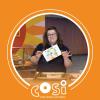
Shaving Cream Marbling
Source Institutions
In this activity, learners will create beautiful greeting cards by marbling with shaving cream and food dye. They will explore the chemistry behind the art of marbling.
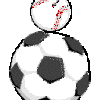
Two Ball Bounce
Source Institutions
This is a quick, yet dramatic activity/demonstration that introduces learners to the concept of energy transfer. A small ball is placed on top of a large ball and both are dropped together.
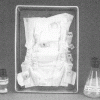
Diaper Dissection
Source Institutions
This is written as a display, but can easily be adapted to a hands-on activity. Learners discover how all the parts of a diaper work together to keep babies dry and comfortable.
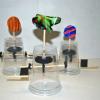
Micro Automata
Source Institutions
In this activity, learners build small animated toys that move.
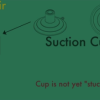
Engineer an Octopus Suction Pad
Source Institutions
In this engineering design challenge, learners build an octopus-inspired suction pad that can grab an object and hold it tightly in the air.
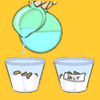
Salt, Soil and Seeds
Source Institutions
Discover how the salt in soil affects plant growth with a few seeds, some cotton, and salt. In this hands-on activity, you will plant seeds in 2 different kinds of soil, containing more or less salt.
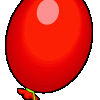
Yeast Balloons: Can biochemistry blow up a balloon?
Source Institutions
Using yeast, sugar, and water, learners create a chemical reaction which produces carbon dioxide (CO2) gas inside a 2-liter bottle. They use this gas to inflate a balloon.
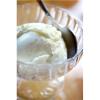
Can You Make Ice Cream in Two Minutes?
Source Institutions
In this demonstration, learners observe how liquid nitrogen both boils and freezes ingredients to make ice cream in two minutes.
